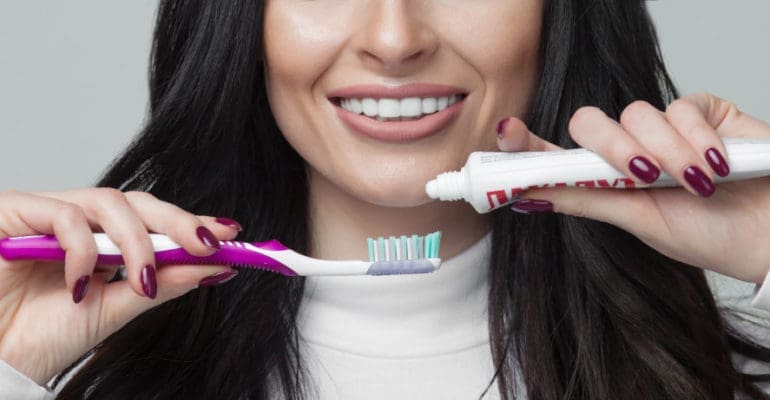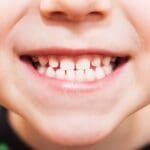Gum disease begins when plaque accumulates along and under the gum line. Plaque is a sticky substance filled with a mass of bacteria. It is found between the teeth, behind or on the front of teeth, or their surface. Gum disease develops in three stages.
Gingivitis is the earliest form of gum disease, and it makes the gum to bleed, swell and become reddish. Periodontitis is the second stage and affects the area or the tissues below the gum line or around the teeth, and if left untreated, it will progress to the next stage. The most severe and final stage of gum disease is advanced periodontitis; this is when your teeth bones and fibers of the teeth are destroyed. The gum will pull away, causing the teeth to loosen, shift, and even fallout.
However, it is essential to know that gum disease is preventable. Below are several ways that can help your gums to remain healthy.
Brush Twice A Day
Brush your teeth at least twice a day or after every meal. This will enable you to get rid of the plaque and food particles trapped between your gums and teeth. Also, make sure your tongue is scrubbed since it also harbors bacteria as well. Always use a toothbrush that has soft bristles and comfortably fits in your mouth. You can also consider electric or battery-powered toothbrush if you can easily find them. Swap your toothbrush heads or toothbrushes every two or three months or as soon as you notice the bristles are fraying.
Floss Your Teeth Daily
Flossing your teeth at least once a day will enable you to get rid of the food particles, tartar buildup, or plaque that is beyond the reach of your toothbrush. You can floss at any time of the day, in the morning, after lunch, or at night. This will help you avoid gum disease or infection.
Maintain Dental Visits
A professional dentist can detect the symptoms of gum disease early enough if you visit them regularly. It will be possible to treat the condition before they become severe, or the dentist can also advise you on how to clean your teeth and avoid the symptoms appropriately. A dentist will also help you get rid of tartar buildup that you were not able to remove during your regular cleaning at home. More tartar buildup often leads to the accumulation of plaque, and a visit to a dental office will also help you clean the areas that were hard to clean. Tartar buildup and plaque are bad for your gum. If you have gingivitis, regular dental cleanings, flossing and brushing can help reverse your condition and have a healthy gum.
Use Anti-Gingivitis Mouthwash
It is also advisable to use a mouthwash that will kill or get rid of the bacteria that causes enamel. There is a wide range of anti-gingivitis mouthwashes that are available in the market, and you can always ask your dentist on which types are the best for you to use. There are those with more benefits, such as preventing cavities, strengthening enamel, and whitening your teeth.
Use Fluoride Toothpaste
Fluoride toothpaste is also beneficial in maintaining good dental health. Various brands claim to whiten the teeth, freshen breath, and even reduce or remove gingivitis. With many convincing messages and images, it is hard to know which ones are real. Always check and pick the one that has an ADA Seal of Acceptance and contains fluoride in them. After choosing, you can pick any color or flavor that you prefer.
Quit Smoking
Smoking is one of the habits that is strongly associated with the onset of gum condition or disease. Smoking not only weakens the immune system, but it also makes it difficult to fight off the gum disease or infection. Also, smoking will make it harder for your damaged gums to heal if you are trying to treat them as well.
Avoid Sugary Drinks and Foods
Sugary drinks or food exposure is often harmful to the teeth, and if you have to consume them, you should clean your teeth immediately. However, if you have a history of gum disease, avoid sugary foods or drinks as they have a tendency to stick to your teeth and often provide a fuel source of teeth decay and bacterial infection.
Drink Water
Drinking water helps you to wash away residue and leftover food particles that might be a source of bacteria that might affect your gums. It will also help in diluting the acids in your mouth, which is produced by the bacteria. However, it is crucial to note that drinking water is not an alternative option for brushing or flossing your teeth. You still need to brush twice a day and floss your teeth daily.
Control Your Blood Sugar Well (For Those With Diabetes)
Diabetes is one of the easiest conditions to control. It is always good to control the blood sugar levels if you have diabetes to help minimize the risk of gum disease. Also, visit your dentist regularly to make sure your gums remain healthy.
Learn More
Preventing gum disease is possible. Learn more by scheduling a consultation today. We have several locations throughout Massachusetts and Connecticut. Just click below to get started.









